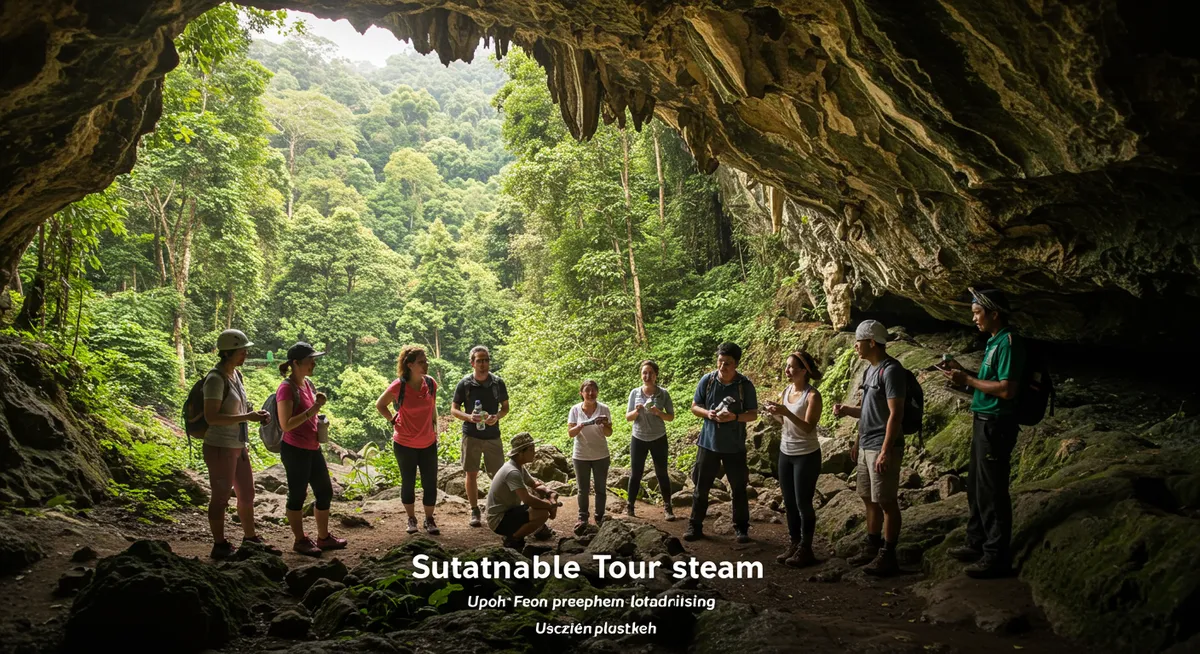
Sustainable Tourism in Ipoh: Nature Tips
Table of Contents
Want to find the best nature experiences for this destination? Chat with our nature tourism specialist!
Get Nature TipsCategory: sustainable-tourism-ipoh-nature-tips
Embrace Eco-Conscious Exploration in Ipoh's Nature
Having explored countless natural landscapes, I've seen firsthand the profound impact tourism can have. When visiting Ipoh, a city renowned for its stunning limestone karsts, ancient caves, and lush green areas, adopting a mindful approach is paramount. This guide shares essential
Embrace Public Transport & Support Local
Minimizing your carbon footprint is a cornerstone of responsible travel. In Ipoh, consider utilizing local buses or ride-sharing services instead of private vehicles to navigate between natural sites like Gunung Lang or Kek Lok Tong Cave Temple. This not only reduces emissions but also supports local infrastructure. Furthermore, choose to dine at local eateries and purchase souvenirs directly from artisans. From my experience, engaging with local communities not only enriches your trip but also ensures your tourism dollars directly benefit the people who call Ipoh home. Find more general travel insights at TouristNature.com.
Respect Wildlife & Natural Habitats
Ipoh's natural landscapes are home to diverse flora and fauna, especially around its remarkable limestone formations. When exploring areas such as the Kinta Nature Park or the various cave systems, it's crucial to observe from a respectful distance and avoid disturbing any wildlife. Never feed animals or leave behind food scraps, which can alter their natural behaviors. Remember, these spaces are their homes, and our presence should be as unobtrusive as possible. By prioritizing their well-being, we help preserve Ipoh's rich biodiversity. Delve deeper into specific spots by exploring Ipoh's Nature Attractions.
Minimize Waste & Practice 'Leave No Trace'
A fundamental principle of sustainable tourism is to 'leave no trace' behind. This means carrying out everything you carry in, including food wrappers, plastic bottles, and any other litter. Ipoh's natural sites, particularly popular ones like the Gua Tempurung or the surrounding jungle trails, are susceptible to accumulation of waste. Always carry a reusable water bottle and avoid single-use plastics. By diligently practicing waste reduction, you contribute directly to the pristine condition of these precious natural environments. For planning your visits, check out the Best Nature Attractions in Ipoh for 2025.
Choose Eco-Friendly Accommodations & Tours
When planning your stay, seek out accommodations and tour operators in Ipoh that demonstrate a commitment to environmental sustainability. Many hotels are now implementing green practices, such as energy-efficient lighting, water conservation programs, and waste recycling. In my travels, I always look for certifications or clear statements of their eco-policies. Similarly, select tour groups that emphasize small-group tours, responsible interaction with nature, and support local guides. For those keen on outdoor adventures, consider exploring Ipoh Hiking Trails for Beginners, often best experienced with eco-conscious operators.
Engage Responsibly with Cave Systems
Ipoh is famous for its majestic limestone caves, which are delicate ecosystems home to unique geological formations and cave-dwelling creatures. When exploring these wonders, such as Gua Tempurung or Sam Poh Tong, stick to marked paths and avoid touching stalactites and stalagmites, as natural oils from skin can halt their growth. Flash photography should be used sparingly, if at all, as it can disturb bats and other cave inhabitants. Being mindful of these details helps preserve these ancient, fragile environments. For a detailed adventure, consult the Gua Tempurung Cave Exploration Guide.
Frequently Asked Questions
Why is sustainable tourism important in Ipoh?
How can I find eco-friendly accommodations in Ipoh?
What are some specific natural sites in Ipoh where these tips apply?
Adopting sustainable tourism practices in Ipoh is not just a trend; it’s a vital commitment to preserving its unparalleled natural beauty. By applying these